How to manage your expectations — and have a more meaningful, local-friendly stay in Southern Italy
The Puglia Podcast is also available from Apple Podcasts, Spotify and wherever else you get your podcasts from.
Puglia is having its moment. Long loved by Italians and Europeans for its beaches, food, and timeless rhythms, this region of Southern Italy is now being discovered by a growing wave of American travellers. One agency reported an 120% increase in bookings from the USA in 2024, with a further 50% increase on top of that half-way into 2025. Attracted by its “authenticity,” slow pace and Mediterranean beauty, many arrive expecting a rustic dream. But for some, the reality can feel frustrating, even disappointing.
Puglia — once overlooked by American travellers in favour of the “holy trinity” of Rome, Florence and Venice, or more recently, Naples and Sicily — has been rebranded in the US press as a hidden gem. Italians have known Puglia for generations: its pristine beaches, slow food, and family-centred rhythms are not secrets. The Dutch, Germans, French and Scandinavians have been visiting for years — without needing to rename, repackage or reinterpret the place.
Why? Because travel in Puglia — and Southern Italy more broadly — asks something that not every tourist is prepared for: cultural adaptation. This region doesn’t work like home, and that’s the point.
So, if you’re visiting Puglia for the first time, here are 10 thoughtful tips to help you manage your expectations, avoid unintentional offence, and have a more enriching and rewarding experience.
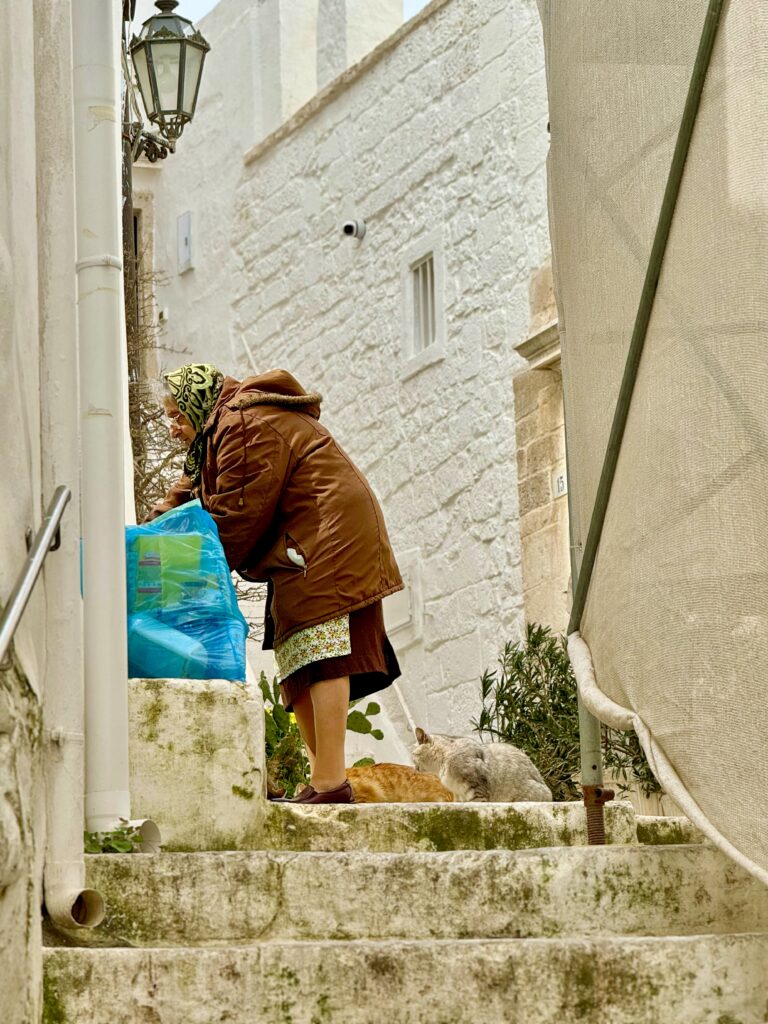
1. Embrace the pace: slowness is the culture
Puglia isn’t rushed. Restaurants take their time. Shops close in the afternoon. Bureaucracy moves slowly. And locals value conversation over efficiency. If you’re used to instant service and rigid schedules, this can feel maddening — but it’s also part of the charm. Slow down, adapt, and enjoy being present.
When we eat out, this is a pleasure and it can be a real luxury for many. It is never rushed. Servers won’t rush to turn your table. And so, if you ask for the check and have to wait, this isn’t bad service. Rather staff will assume you do not want to rush, that you are enjoying the experience, and they are extending their welcome to you, their guests.
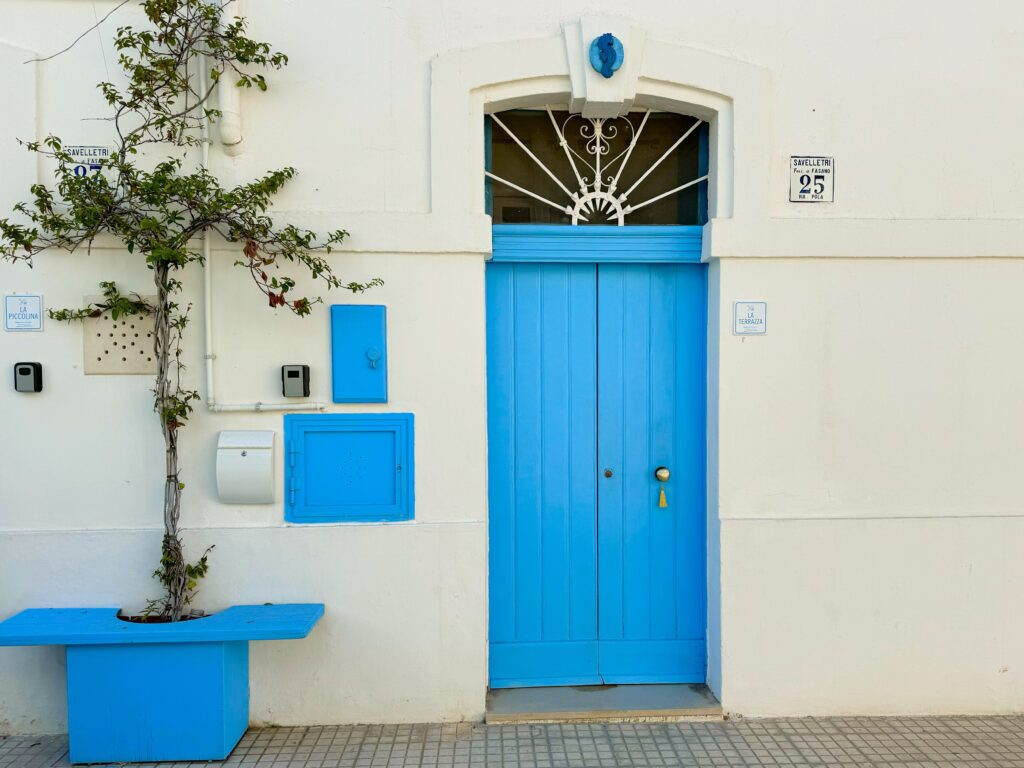
2. Don’t expect American-style amenities
A 300-year-old masseria won’t have an elevator. Showers might be small. Air conditioning might be in only one room — if at all. Expect charm, character, and imperfection. This isn’t a flaw; it’s part of how people live here. If you need something specific, ask — but don’t expect every place to operate like a boutique hotel in New York.
Insider information | currency – euro (€). Don’t bring dollar bills expecting them to be accepted. Italy has a stable currency, the euro, which is authorised by the European Central Bank. With a balance sheet total of around 7 trillion it is one of the world’s most important central banks. US dollar bills are only needed if we are visiting the USA. Do bring some euro currency. While most places will accept bank cards, electronic and contactless payments (we use our iPhone frequently) and credit cards – American Express is the exception, fewer merchants accept it because of higher transaction costs – you will have to pay the city tax for accommodation in person at the property. The amount varies. In Bari it is currently 2€ per night, per person, in Ostuni 1€ per night per person.
3. Learn a few words of Italian
Many locals don’t speak English fluently. Learn simple phrases like buongiorno, grazie, and per favore. Even if your accent is off, the effort is appreciated. Assuming people should speak English because you’re visiting can come off as inconsiderate — especially in smaller towns. And understand that if you insist on speaking English, you simply might not be… understood.
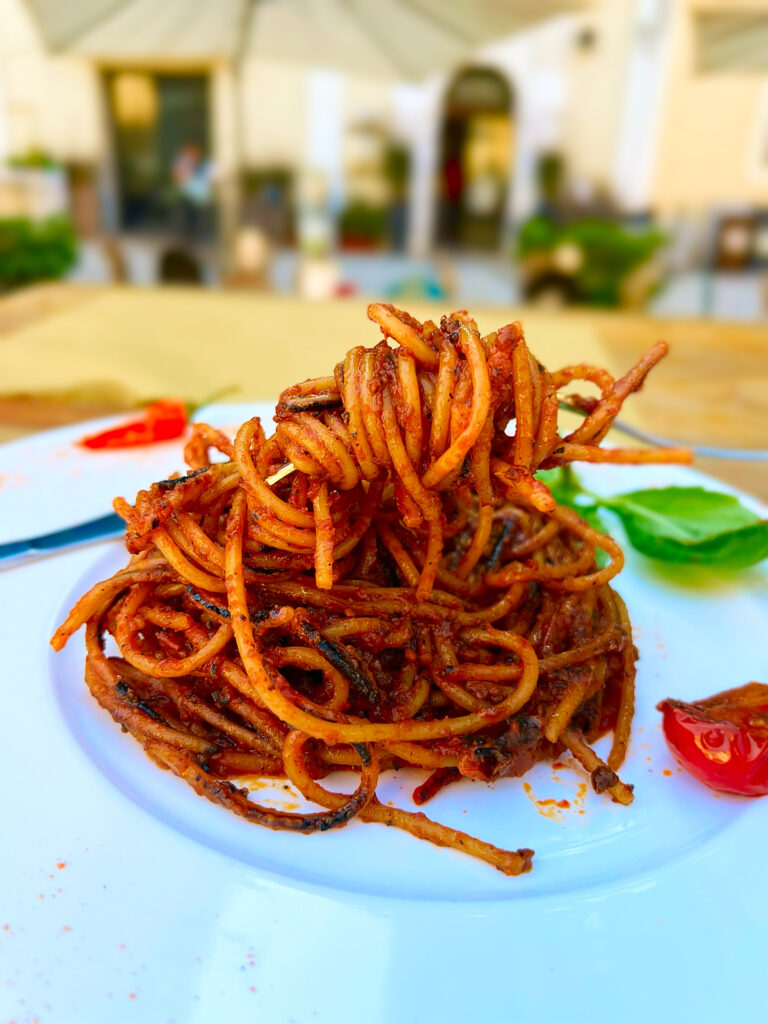

4. Respect the food culture — and don’t try to customise it
Italian menus are not suggestions. There is pride, heritage, and seasonality behind every dish. Asking to remove ingredients or add others (no cheese, dressing on the side, gluten-free unless coeliac) can genuinely confuse or offend. Respect what’s offered — or choose somewhere else to eat.
Insider information | coperto charge on restaurant checks. Most restaurant bills in Italy include a small extra charge called the coperto — a fixed cover charge, usually €2–3 per person. It’s not optional, it’s not a tip, and it’s not just for tourists. The coperto is standard practice across Italy and covers table service, the use of tableware, and bread (whether it’s served or not). By law, it should be listed on the menu — though sometimes it’s tucked away in fine print or only shown on the menu displayed outside.
5. Be mindful of dietary requests
If you follow a specific diet, research ahead. Vegan and gluten-free options are growing, but keto, paleo, or low-FODMAP are not concepts many locals know. Bring snacks, explain simply, and don’t expect full menus to be adapted on the spot. This is a land of olive oil, bread, cheese, and pasta — and that’s what makes it wonderful.
Insider information | tipping in Italy isn’t expected. Locals might round up the bill to the nearest euro. You’ll rarely see Italians tipping like in the US. American tipping culture is not something we want to introduce, and is not encouraged.
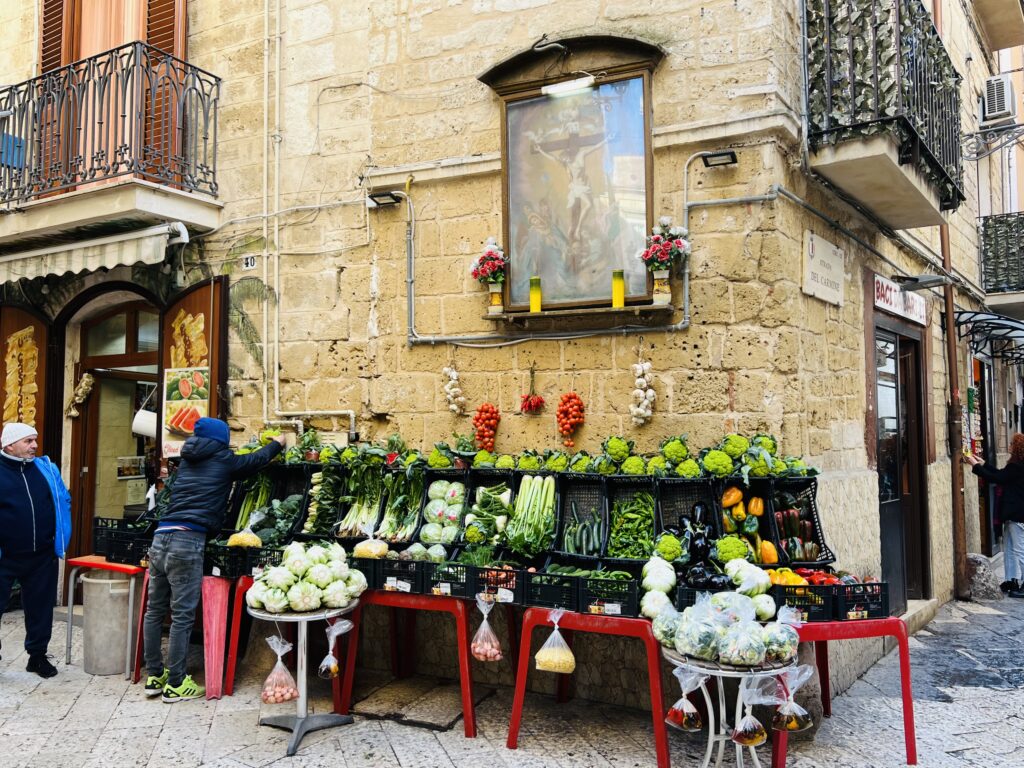
6. Understand that not everything is “for tourists” — and that’s a good thing
Some places don’t open every day. Some don’t serve cappuccino after noon. Some only take cash. It’s not because they’re unprofessional — it’s because they’re local. Instead of seeing this as bad service, see it as genuine culture that hasn’t been smoothed out for mass tourism.
7. Blend into the background
In Southern Italy, volume and tone matter. Loud voices in a quiet piazza or at dinner can be distracting. Pay attention to the energy of a place, and match it. You’ll blend in better and make more genuine connections.
8. Don’t treat Puglia as a checklist
It’s tempting to pack in 10 towns in 5 days. But this isn’t a region to “do.” It’s a region to feel. Stay longer in one place. Walk. Sit in a piazza. Go to a sagra. Chat with your host. The magic is in the small things — not in ticking off locations.
Insider information | sales tax. Yes, we have sales tax on goods and services. It’s a value added tax called “IVA”. The prices you see on menus and in shops are inclusive of sales tax (and you will see this referenced on bills “di cui IVA”). That way the price you see is the price you pay.
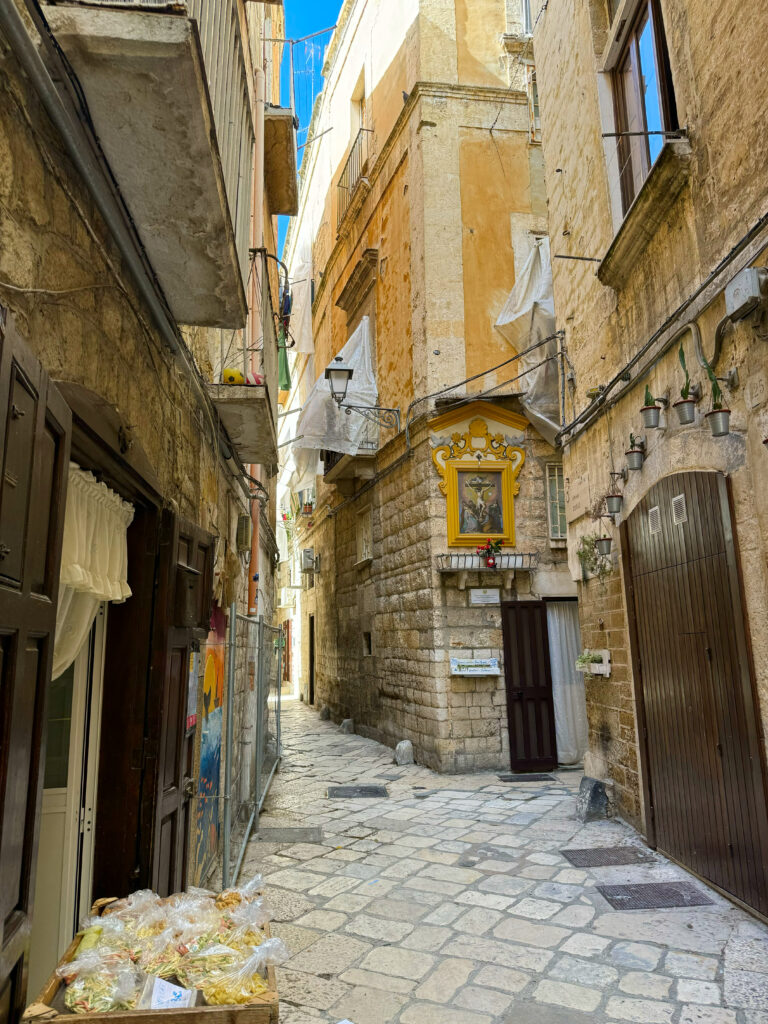
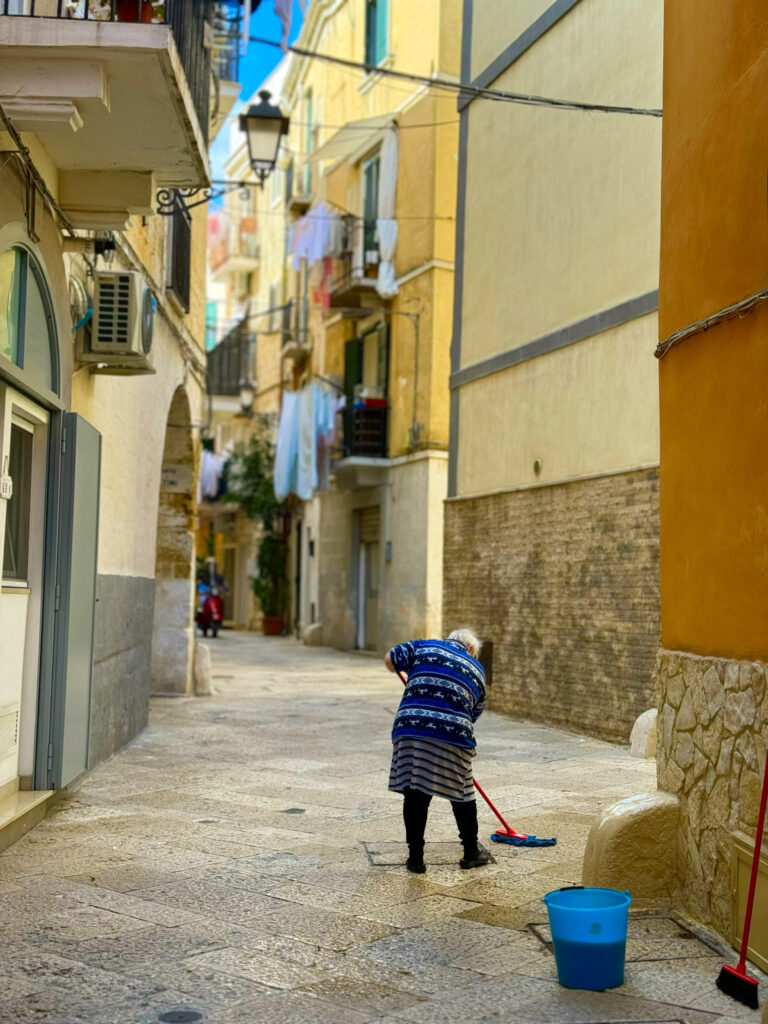
9. Respect that this isn’t a theme park — it’s home
People live here. They go to work, raise families, and deal with the same complexities as anywhere. Taking photos of strangers without asking, commenting on “how poor” or “undeveloped” it feels, can be unintentionally offensive. Be a guest, not a consumer.
10. Be open to being uncomfortable — it means you’re learning
Culture shock isn’t failure; it’s the start of understanding. When things feel unfamiliar or difficult, resist the urge to complain. Ask questions. Stay curious. Let go of control. You’re on vacation in a foreign country — and that’s the point.
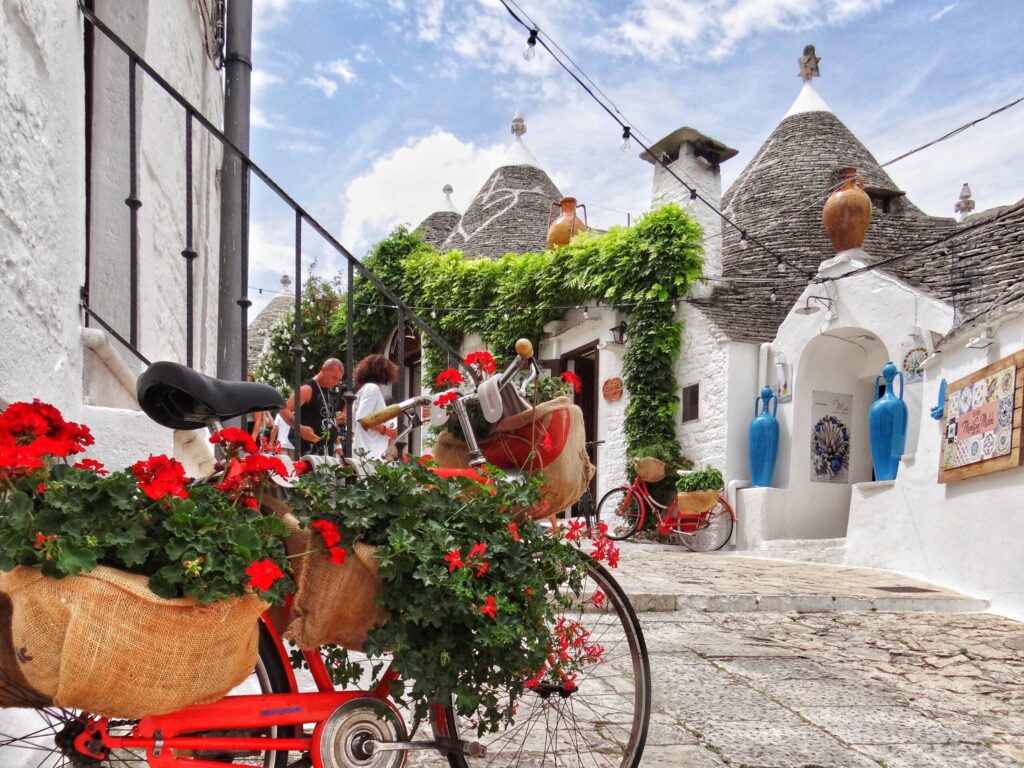
BONUS
11. Remember: You’re the culture shock
It’s important to understand that many people in southern Italy — especially in smaller towns and rural areas — don’t know American culture. They don’t follow U.S. politics, they may never have travelled abroad, and they certainly don’t see the world through the same media lens. Yes, younger generations stream Netflix and scroll Instagram, but others still live without reliable internet or even television. This isn’t ignorance — it’s a different reality. Puglia remains one of Italy’s more economically challenged regions, with deep rural roots and a slower path to development.
So when you arrive you might feel disoriented. But imagine how it feels for those on the other side of the interaction. You may be the first American someone has ever met — and that first impression matters.
12. Please don’t order Pinot Grigio
Puglia is Italy’s 2nd top regional wine producer. Take advantage.
- Puglia is traditionally known for full-bodied red wines such as Primitivo, Negroamaro, and Nero di Troia, and increasingly for rosé wines and some local whites like Fiano, Verdeca, and Bianco d’Alessano.
- Pinot Grigio is grown in Puglia mostly by large-scale producers or estates catering to international export markets. It’s not a native grape, nor part of the region’s heritage varietals.
- If you see a Puglian Pinot Grigio on a wine list, it’s likely made in a lighter, commercial style and targeted at tourists or foreign buyers. It’s not representative of the region’s wine identity.
What to Drink Instead:
If you’re in Puglia and looking for a white wine that speaks of place, try:
- Fiano – aromatic and elegant
- Verdeca – crisp and mineral
- Bianco d’Alessano – increasingly valued in natural wine circles
- Or even Locorotondo DOC and Gravina DOC blends
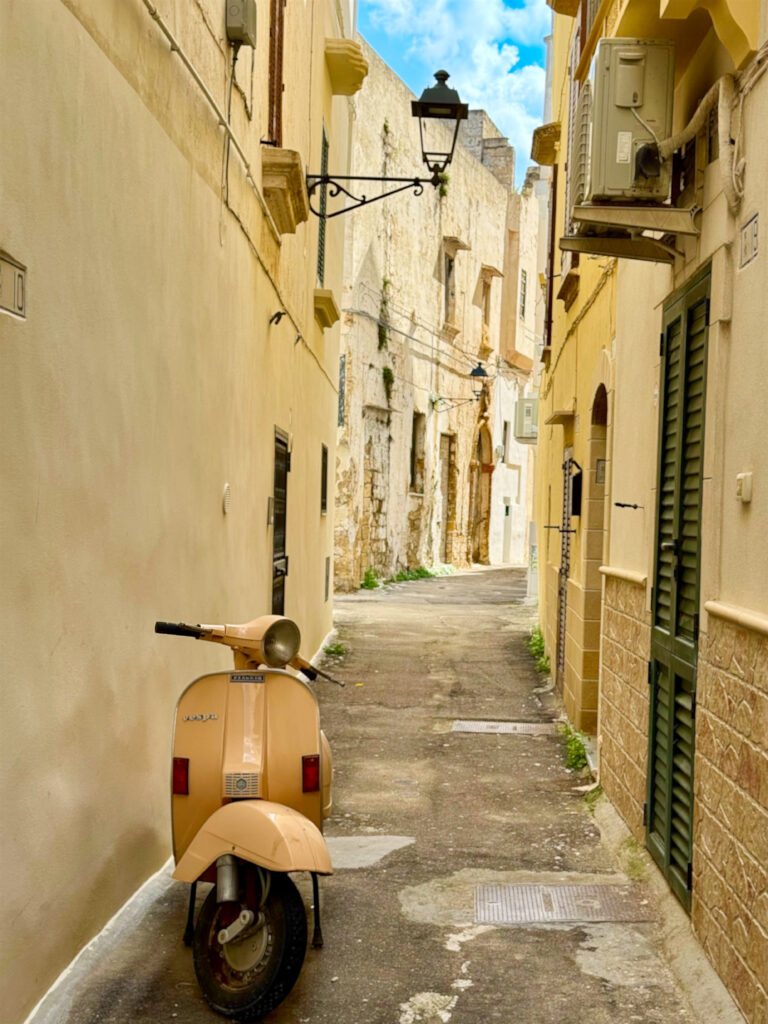
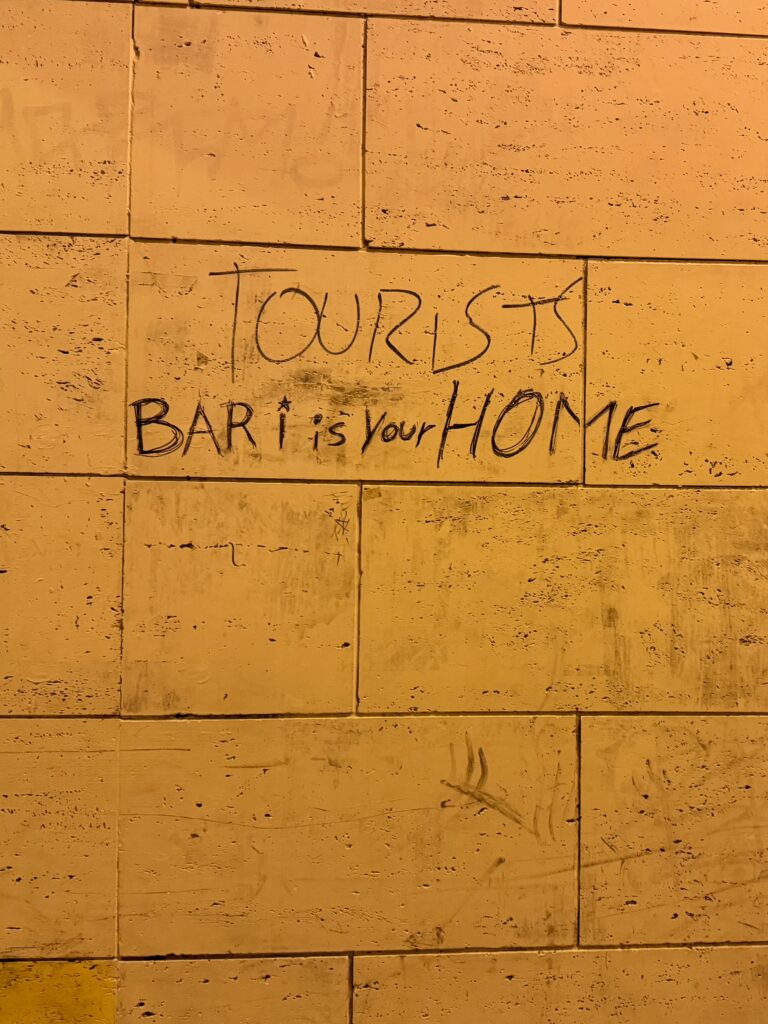
Final thoughts
Puglia is a living, breathing region — rich in tradition, shaped by hardship, defined by joy, and proudly itself.
You’ll get the most from your visit — and give the most in return — if you come not with expectations, but with openness. Not to change it, but to be changed by it.
Postscript | June 2025
Understanding Cultural Expectations: A Note for Visitors
We recently joined a pasta-making course with a friendly group of American visitors who were staying in Ostuni’s historic old town, spread across several short-term holiday rentals. As the conversation turned to their accommodation, a few common frustrations came up – small rooms, narrow staircases, uneven steps, and low arches in hallway entrances.
What stood out to us wasn’t the criticism itself, after all, everyone has their own comfort preferences, but how this highlighted a deeper cultural difference in expectations. Most of these historic apartments are over 150 years old, some more than 200 years old. Their charm lies precisely in their quirks and character, which can feel quite different from the modern comforts American travellers may be used to at home.
Of course, Puglia also offers sleek, contemporary rentals with spacious rooms and straight, wide staircases. But these are typically found outside the historic centres, away from the cobbled streets and piazzas that make places like Ostuni so special.
So, if your dream is to stay in the heart of the old town – in an atmospheric apartment full of charm – just know that character and convenience don’t always go hand in hand. Embracing the quirks can be part of the magic.
Grazie!
On another occasion, while staying at a hotel in Taranto, we found ourselves sharing the breakfast room with guests from all over Europe, including a small group of Americans. While the Americans were friendly and enthusiastic, we did notice something that might be worth a gentle cultural note.
Across the room, most European guests – regardless of their native language – tended to greet the staff with a warm “buongiorno” or say “grazie” when served. The American guests, on the other hand, continued to speak in English throughout – saying “good morning,” “please,” “thank you” – which is perfectly understandable and well-intentioned.
Still, a small effort to use even just a couple of local words – “ciao,” “grazie,” or “per favore” – can go a long way. Not only is it appreciated by locals, but it shows a willingness to connect with the place and culture, however briefly. It’s not about fluency, but friendliness – and in Italy, that’s always met with a smile.

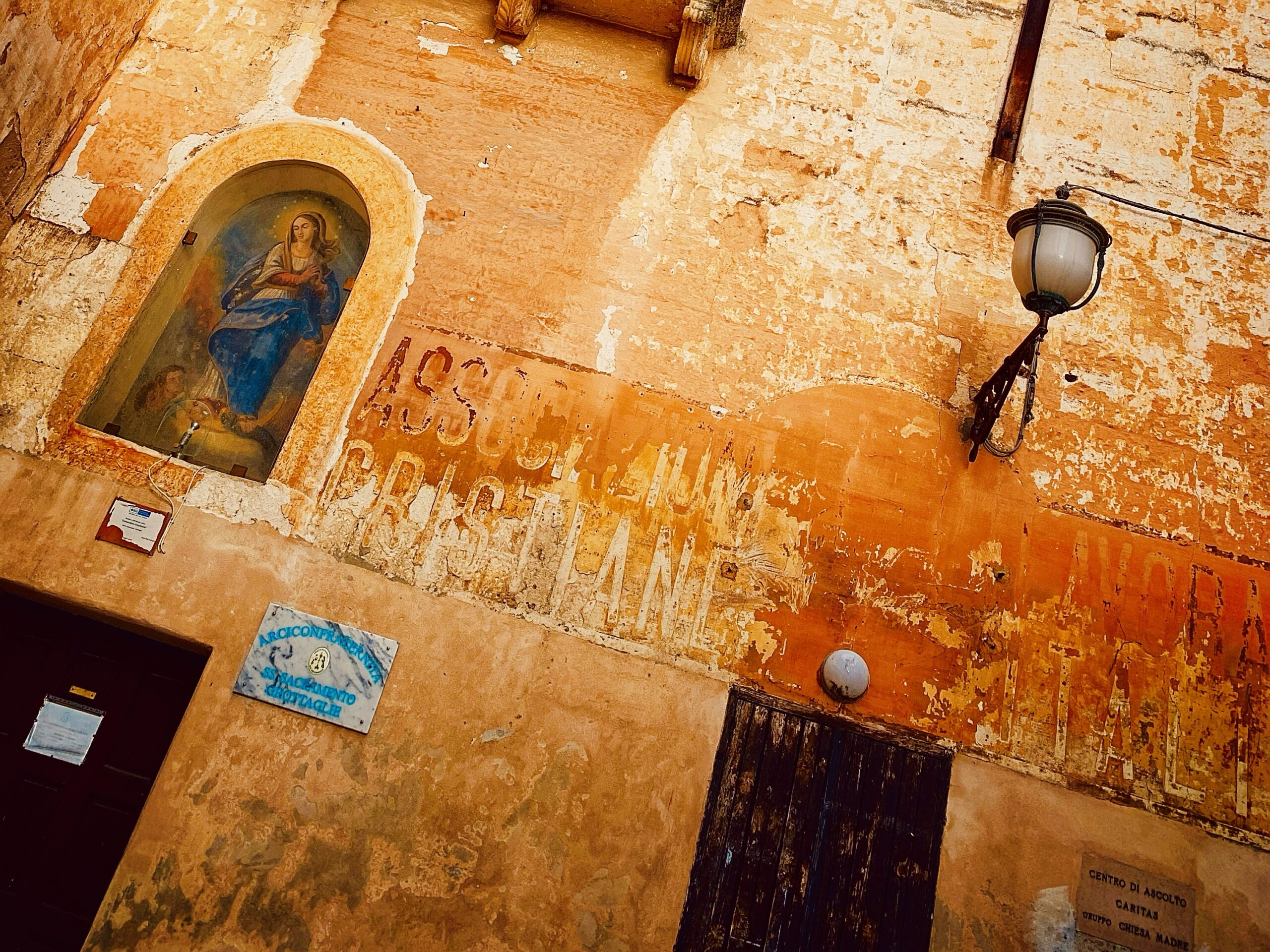
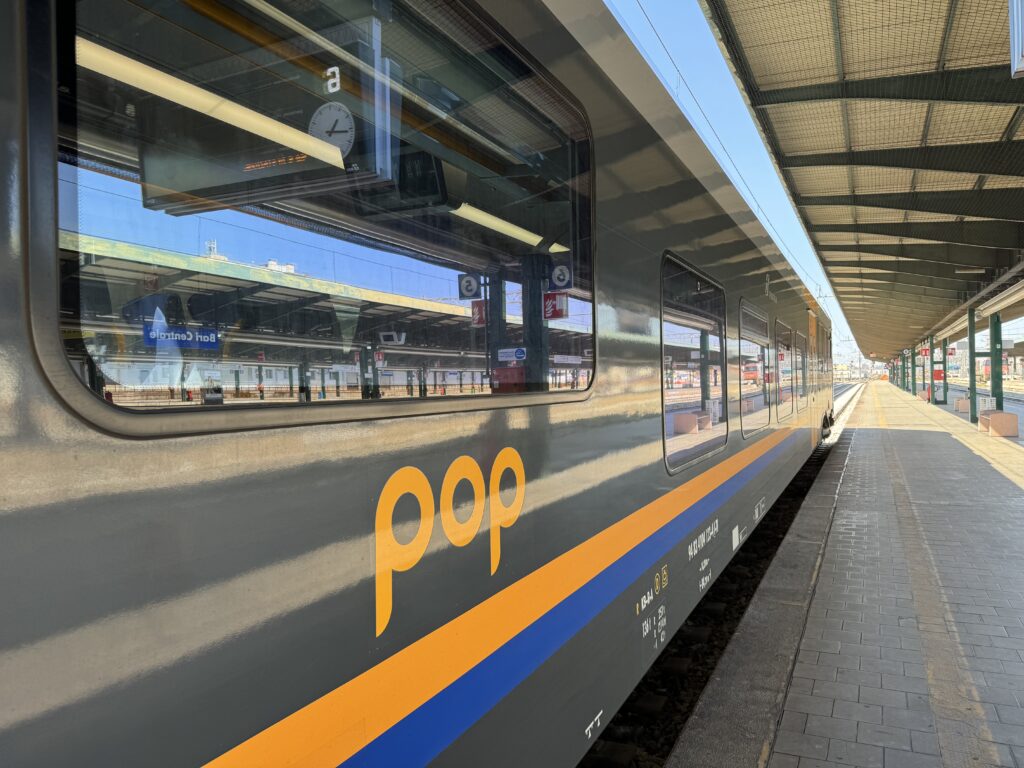

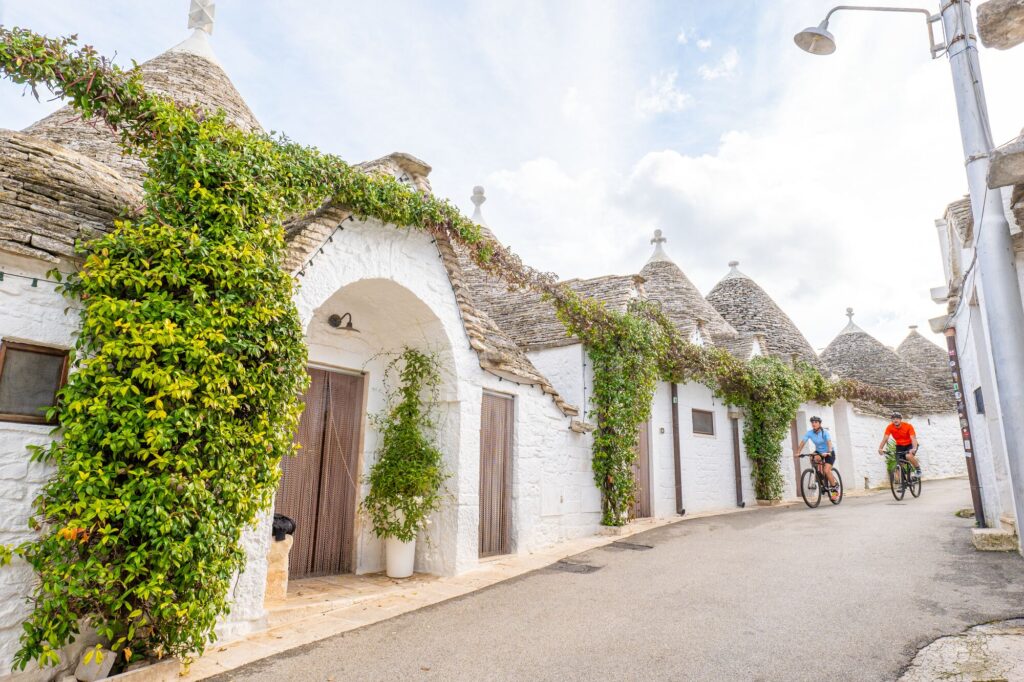
Hello Flavia,
I hope you’re doing well! I just wanted to share how much I enjoyed listening to you on the Untold Italy podcast. It was so clear how much you treasure your Italian heritage, especially when speaking about Puglia. As someone who is also deeply proud of my own culture, from Turkey, I truly felt your passion and genuineness. Learning about the bread in Altamura, the cheeses in Gravina, and the wines in Murgia was fascinating. It really made me want to visit these places, along with Bari and any other spots you think we should experience. I also adore your Instagram page!
My husband and I are planning our first trip to Italy in October, and as you can imagine, it’s a bit of a challenge deciding which regions to visit, especially with such a limited timeframe. We’ll be there for twelve days, with two of those reserved for travel. Our ideal experience is a bit different from the typical tourist itinerary—we’re not too focused on major landmarks like the Vatican, Colosseum, or big art museums. Instead, we’re drawn to smaller towns, beautiful countryside landscapes, and authentic food experiences. We’d love to dine at local, non-touristy restaurants and enjoy a slower, more authentic pace of Italian life, but we’d also like to visit Rome and Florence briefly.
I’m reaching out for your guidance on planning our itinerary, especially for Puglia and how to get there. Here’s what I have in mind so far:
Day 1 – Arrive in Rome from the United States
Days 2-3 – Rome
Days 4-6 – Florence
Days 7-10 – Puglia
Day 11 – Rome
Day 12 – Fly home from Rome
I have a few concerns about logistics:
What’s the fastest way to get to Puglia? I assume it’s further to travel from Florence compared to Rome, so I’m trying to figure out the best transportation options. We don’t plan to rent a car, so I’m leaning towards taking the train. Could you advise on that?
I’d love any tips or information on how to get between Rome, Florence, and Puglia without losing too much time. Any guidance here would be greatly appreciated!
Finally, if this itinerary works, I’d be grateful for any recommendations on where to stay and dine in Puglia. We’re looking to experience the authentic, local side of things.
Thank you so much for your time, Flavia—I look forward to hearing from you and good luck with your book!
Ahah! We aren’t Flavia, nor are we the Untold Italy Podcast. We are the Puglia Guys Podcast (on Apple, Spotify and wherever else you get podcasts from). But we do have a book coming out, and we hope our guides might help. We are focussed on Puglia. We have no product or services to sell, so we think you can trust us!
You can fly from Rome to Bari or Brindisi. The flying time takes about 50 mins. To drive takes around 4h – 4h30 depending on traffic. By the time you factor in airport time and getting there, driving isn’t so bad. Train is just over 4h to Bari. We recommend having a car when you get here if you want to visit most interesting destinations, but if not the regional train services along the Adriatic regions train line are modern, reliable and regular. For your short stay that still gives you plenty options for day trips: Polignano, Monopoli, Brindisi, Lecce. But without a car the smaller towns you cherish won’t be so easily accessible.
Puglia is considered one of Italy’s top 2 foodie destinations, and Bari is certainly a hub for gastronomy:
https://www.pugliaguys.com/2024/10/20/love-puglia-love-food-bari-eating-out-guide/
But good food is all around.
Whether you choose Bari as a base, or elsewhere, we have a specific guide to help you choose a base that suits your travel style:
https://www.pugliaguys.com/where-to-base-yourself/
As for itinerary planning, same:
https://www.pugliaguys.com/2024/03/13/puglia-itinerary/
October is a quiet time in Puglia, there won’t be crowds.
Buone vacanze.
LuigiM.
– – – –
Original message: Banu Eser
Hello Flavia,
I hope you’re doing well! I just wanted to share how much I enjoyed listening to you on the Untold Italy podcast. It was so clear how much you treasure your Italian heritage, especially when speaking about Puglia. As someone who is also deeply proud of my own culture, from Turkey, I truly felt your passion and genuineness. Learning about the bread in Altamura, the cheeses in Gravina, and the wines in Murgia was fascinating. It really made me want to visit these places, along with Bari and any other spots you think we should experience. I also adore your Instagram page!
My husband and I are planning our first trip to Italy in October, and as you can imagine, it’s a bit of a challenge deciding which regions to visit, especially with such a limited timeframe. We’ll be there for twelve days, with two of those reserved for travel. Our ideal experience is a bit different from the typical tourist itinerary—we’re not too focused on major landmarks like the Vatican, Colosseum, or big art museums. Instead, we’re drawn to smaller towns, beautiful countryside landscapes, and authentic food experiences. We’d love to dine at local, non-touristy restaurants and enjoy a slower, more authentic pace of Italian life, but we’d also like to visit Rome and Florence briefly.
I’m reaching out for your guidance on planning our itinerary, especially for Puglia and how to get there. Here’s what I have in mind so far:
Day 1 – Arrive in Rome from the United States
Days 2-3 – Rome
Days 4-6 – Florence
Days 7-10 – Puglia
Day 11 – Rome
Day 12 – Fly home from Rome
I have a few concerns about logistics:
What’s the fastest way to get to Puglia? I assume it’s further to travel from Florence compared to Rome, so I’m trying to figure out the best transportation options. We don’t plan to rent a car, so I’m leaning towards taking the train. Could you advise on that?
I’d love any tips or information on how to get between Rome, Florence, and Puglia without losing too much time. Any guidance here would be greatly appreciated!
Finally, if this itinerary works, I’d be grateful for any recommendations on where to stay and dine in Puglia. We’re looking to experience the authentic, local side of things.
Thank you so much for your time, Flavia—I look forward to hearing from you and good luck with your book!
Ciao Puglia Guys!
My husband and I are coming to Puglia for 2 weeks mid – late August. It’s a place we have been wanting to visit for about 10 years now!! I have been furiously reading all the GREAt content on your website, all your recommendations and itineraries. I really like your authenticity!!
When talking about finding a base to explore Puglia, you mentioned to chose 2 places if time allows. We would like to explore all of Puglia in these 2 weeks but also get some good beach time in to relax also.
I am struggling to nail down 2 bases to stay. I would like in towns on the ocean or relatively close to it & has a great Italian town feel where we could walk a lot with cafes, local shops. Ideally, one town to explore north to central Puglia & one base to explore south & central towns.
Perhaps you could provide suggestions of 2 contrasting towns or towns that have good beach access & walk around town feel rather than busy touristy cities. Prefer Italian and European feel, culture and attitude.
Really appreciate your feedback!
Grazie! Doreen
Ciao.
1. From our Puglia Guys Find the Best Base in Puglia Guide:
From north to south, Puglia runs over 400km:
For travel planning, think of our region in three parts:
the Gargano Peninsula to the north (Vieste, Peschici) with a vast forest and great beaches, for hiking, mountain biking and water sports.
central Puglia made up of Terra di Bari (Trani, Bari, Andria for the UNESCO Castel del Monte, Polignano a Mare, Monopoli and Bari itself) and
the Valle d’Itria (Alberobello, Locorotondo, Martina Franca, and Ostuni), the most visited part of Puglia.
the Salento Peninsula to the south (Lecce, Gallipoli, Otranto, Santa Maria di Leuca) for sun, sea and some of Puglia’s best beaches typically rocky along the Adriatic coast and golden and white sand along the Ionian.
2. From the same guide:
Choose a central base in the areas you want to explore. Bari Vecchia is great for travelling around Terra di Bari and for a hop over to Matera. In or around Ostuni is perfect for exploring the countryside around the Valle d’Itria, plus Monopoli, Polignano a Mare, and for getting to the Valle d’Itria’s best beaches. You can day trip Lecce from Ostuni. For exploring Salento, in or around Lecce, or seaside towns like Gallipoli or Otranto are recommended.
3. Did you say whether you have a car or are relying on Public transport? That makes a big difference on where to base yourself. Martina Franca is an excellent base for exploring the Valle d’Itria, but the public transport connections are not decent for daily travel from and to. Ostuni, which is great for the Valle d’Itria and being near it’s best beaches, has limited bus connections to the neighbouring towns, sometimes you have to connect via one to another, and the train station is 3.5km from town, so involves buses or taxi to and from.
4. Mid to late August is the busiest of busy times. In this month alone all the beach destinations (including Gallipoli, Otranto, Monopoli) will be heaving, this is no exaggeration! Finding a quiet beach in any of the towns or cities that provide easy beach access will be almost impossible. In August alone over 800,000 Italian visitors come on vacation (this year we expect it to be over a million as tourism is up by staggering numbers already this year). We would avoid Gallipoli, Otranto and Monopoli in August if a quiet beach experience is needed.
By easy access, do you mean a beach that is within walking distance or one that is, say, within a 30 minute drive from town? See our destination guides and beach guides for suggestions: we have already mentioned Ostuni as a great central base with your own transport, with access to the Valle d’Itria’s best beaches. But we also mention that over the late July to mid-September its near neighbour Carovigno might make a better base because Ostuni numbers more than triple!
5. We don’t even mention the resorts like Porto Cesareo, Torre Lapillo that will be even busier.
6. In August Gargano is slightly quieter and Vieste has a huge beach that can cope with mass influx of tourists. But Gargano feels cut off from the rest of the region – it’s a 2 hour drive from Bari. In our experience Santa Cesarea Terme at the other end is usually quieter, but there you will have to rely on beach lidos, there is limited sandy beach, and you will need swimming shoes to protect your feet. But you can do interesting day trips from there by car, though it’s not where we would spend as much as a week.
So, compromises to be made depending on your priorities.
On the other side, all our towns and cities are southern Italian, so no problem there.
Buone vacanze.
LuigiM.